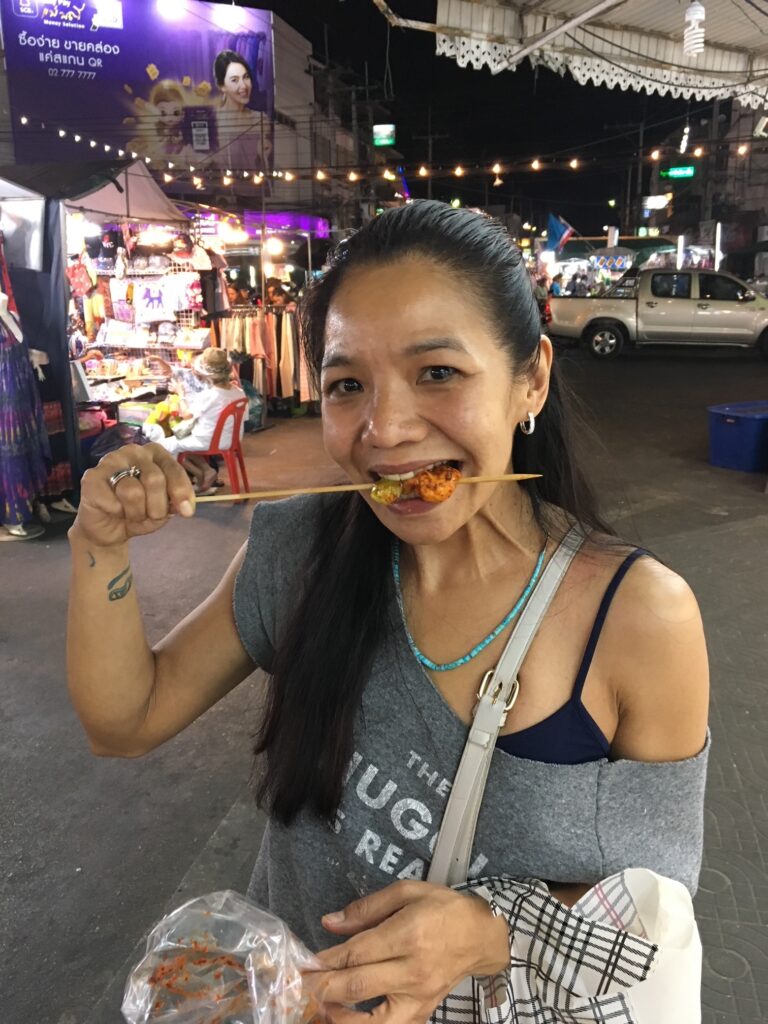In my early twenties after training and completing my first marathon, I was unable to stop binge-eating. I would eat myself sick and then, within the hour, I would feel hungry again, and shove more food into my mouth until I passed out. I’d wake up to a shame spiral and begin to find a way, any way to get rid of the added weight and other damage I might have done to my body. This perception of “damage” was informed by not looking the way my family thought I should, to how characters on whatever television show I was watching looked. The emptiness was not in my stomach but in my heart and no amount of bagels, chips, and ice cream was going to fill that hole. The saddest part about this is I love food so much. Food brings me great pleasure and joy. It feeds my creativity, brings our family together, and provides such comfort and nurturing.
For years, on and off, I struggled with eating: how much, too much, not enough, longing to eat but afraid I wouldn’t be able to stop. I’ve sought professional help and found healthier ways to soothe my pain, but when something fell apart, I’d find myself in that unclear zone of replenishing or destructing myself with food again. It’s impossible to deny myself food; I need it to live, and I also need it for joy, pleasure, replenishment and healing. How do I have a loving relationship with food again?
What I discovered was that I often binged after I hadn’t eaten for a long time. When I felt empty, I would so look forward to eating and filling up with my favorite dishes, but wouldn’t be able to stop. Not eating or skipping meals often made me feel light and thin. It reminded me of when I started rapidly losing weight from running. I wasn’t fat to begin with, but I had baby fat still and shedding that brought me the kind of attention that I thought I wanted. I liked that feeling and it wasn’t hard when I was running at least 5 miles a day, every day. I enhanced that feeling even further by limiting my calories and policing what I would put in my mouth, telling everyone I was training and had to watch what I are. Such discipline, they thought. Such obsession, was more of what was really happening. I starved myself and my body remembered long after.

I realized I needed to reassure my body that I wouldn’t put her through that again. That I would take care of her and not deny her food. That I would feed her when she was hungry, and not punish her if I felt I ate too much. I started carrying food with me everywhere and I ate every few hours. Even while waiting for food to be prepared at a restaurant, if I felt hungry I would grab a handful of almonds to soothe the hunger. I didn’t wait to be famished to allow myself to eat. I ate good things and things I wanted. If I felt like I overate, I did not harp on myself, and I remembered to reassure myself that in a few hours I could eat again. I also stopped eating alone whenever I could, and many friends supported me in making that possible. After a couple of years of holding to those agreements, I regained the trust of my body. She now knows I will not neglect or punish her. And when someone asks me, what is your most successful relationships (before I met my now husband of course), hands down, I always answer: It is my relationship with food. I navigate how I eat and the food I eat with joy and care. Today I have deep appreciation and love for food, and for eating, and most importantly for myself.
Through this experience and many other healing navigations I realized I was mediating with the part of myself that I had neglected. And it was by holding myself accountable for the things that were my responsibility that I began to shift and repair that trust with myself.
After almost two decades of somatic educations and practices, and now as a certified mediator, I wonder if this can also be a pathway for others to care for the parts of themselves that are longing to be heard and seen and make the shift towards thriving and living their complete selves?